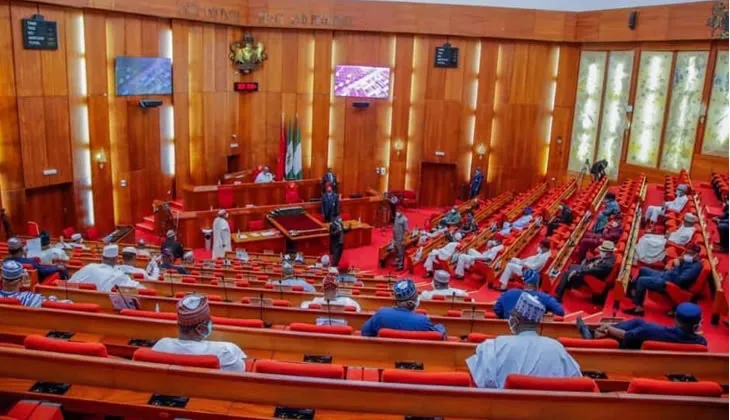The Nigerian Senate is planning a constitutional amendment that would give the Economic and Financial Crimes Commission (EFCC) the authority to investigate and prosecute military officers accused of corruption and financial crimes.
Senator Emmanuel Udende, chair of the Senate Committee on Anti-Corruption and Financial Crimes, shared this update during a committee visit to the EFCC’s headquarters in Abuja.
Currently, the EFCC can only proceed with cases involving serving military personnel after they have been court-martialed, which limits the agency’s ability to swiftly address allegations of corruption within the armed forces.
Senator Udende noted that addressing these constraints, along with securing sufficient budgetary support, could significantly enhance the EFCC’s effectiveness in tackling financial crimes across all sectors.
“The situation where a court rules that a military man cannot be investigated and prosecuted unless he goes to a court-martial, we think, runs counter to the EFCC Act. We thought that we would do that by amendment of the EFCC law itself so that they will have the powers to do the investigation and do the prosecution,” the lawmaker said.
Meanwhile, Udende stated that the committee would ensure an increase in the budget of the commission, going by its remarkable achievements under the current chairman, Ola Olukoyede.
Udende said: “As a committee, we want to commend the Chairman and his team for doing a very wonderful job. I couldn’t believe it when I saw the report. And nobody has come forward to dispute this report.
“As a committee, we are satisfied that they have done a good job. We were going to lay this report before the Senate for its consideration, but as a committee we are satisfied.
“We have gone through the budget performance. We are also satisfied that they have done a good job, within the limited resources that they have.”
He, however, identified the lack of understanding from many Nigerians, who usually accuse the lawmakers of budget padding each time they appropriate beyond what was sent by the executive arm of government.
He explained that what the executive brings is a draft and only becomes a law or an act after it is deliberated and passed by the legislators.
“When you look at an agency like EFCC and say they need this much, and you put the money there, Nigerians will say you can’t pay the money. I was deputy chairman of the committee between 2015 and 2019. I was a member of the committee.
“We decided that this headquarters must be completed. By the time the budget came out, people were pissing us off. That is the biggest problem that we have in this country—that lawmakers are not allowed to do their job,” he said.
Earlier, Olukoyede sought the cooperation of the lawmakers in the fight against corruption, stressing that corruption is the reason behind all the challenges facing Nigeria.
The EFCC boss, who observed that the mandate of the committee is very critical for the progress of Nigeria, charged the lawmakers to support the agency in eradicating corruption from Nigeria.
“We know the state of our security or insecurity. And I think one of the things that’s very critical to some of these problems we are having is the issue of corruption.
“Some of the money allocated to some of these infrastructure issues, one way or the other, is either diverted or, upon the application of the money, we don’t get value,” Olukoyede said.
He reiterated his pledge made on the floor of the Senate during his confirmation to fight corruption to a standstill through various policy initiatives, stressing that in the last year, EFCC has recovered billions of cash both in local and foreign currencies.




